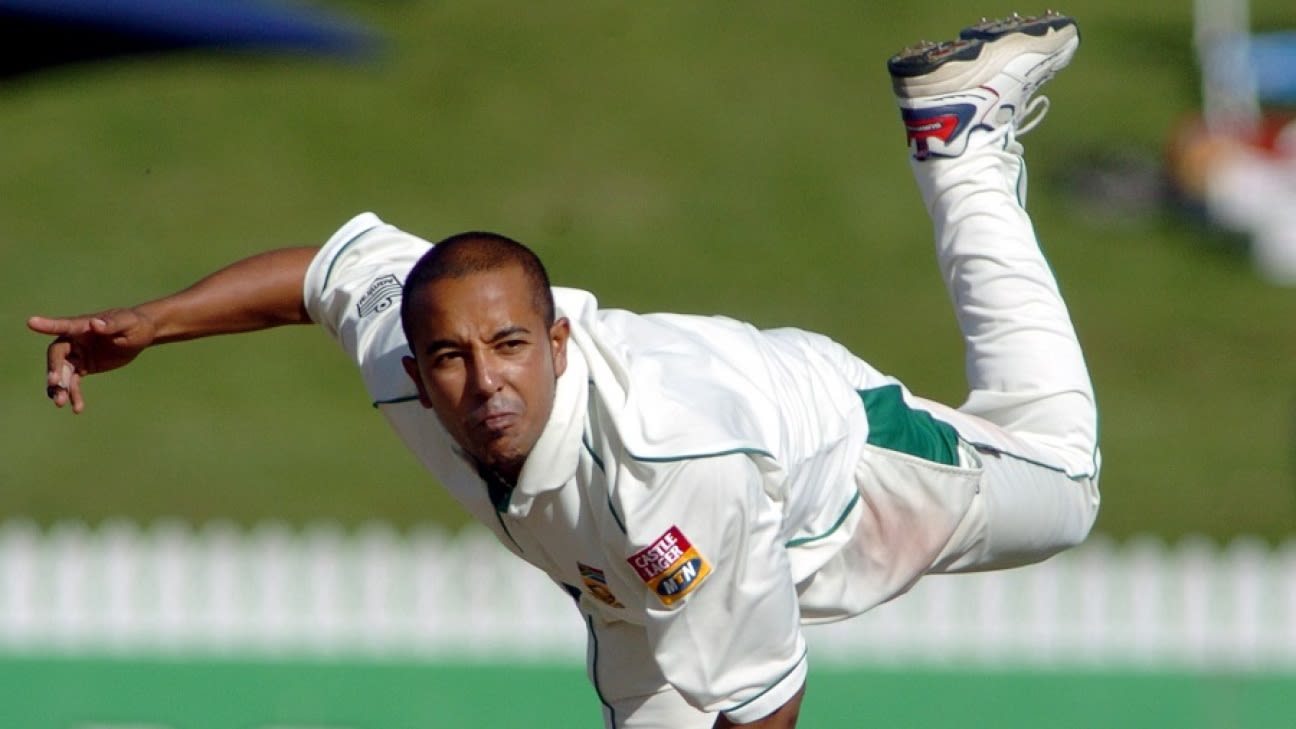Paul Adams: I was nicknamed ‘brown s*** when I was playing’
The former spinner reveals several instances of racial discrimination across his playing and coaching career
“I was called brown s*** when I was playing. It often used to be a song when we won a game and we were in fines’ meetings. They would sing, ‘brown s*** in the ring, tra la la la laa,'” Adams said, adding that his wife, who was then his girlfriend, was the first to ask him why he was called that and say it was not right. “When you are playing for your country, when you have had that victory, you don’t make sense of it, you brush it off, but it’s blatantly racist. Some people will say unconscious bias and they weren’t aware but this is why we are here – to change that.”
Adams also recalled how he was viewed by certain sections of the media, who, he said, used preconceived ideas about people of his race, Cape Coloured, as criminals to describe his bowling action.
“It [my action] would be described as ‘stealing hubcaps off moving cars’ and I found it derogatory. Was it because I was born in the Cape Flats? Is it always that Cape Coloureds are referred to as gangsters and thieves?”
“When I burst on the scene, I was very different: my action, I was very different from the norm, from how I looked, the music I played and even how I spoke. But one thing stood out for me, which was how some parts of the media described my bowling action. It would be described as ‘stealing hubcaps off moving cars’ and I found it derogatory. Was it because I was born in the Cape Flats? Is it always that Cape Coloureds are referred to as gangsters and thieves? It’s a form of racial stereotyping.”
Adams’ acknowledged that although he didn’t speak out against prejudice in his playing days, “it has been sitting in my head and I just haven’t had a platform to speak out about it”, and he was aware of the challenges and pressures of being a player of colour in the late 1990s and early 2000s.
“I got many messages and a special message from Tata Nelson Mandela [South Africa’s former president],” Adams said. “He expressed to me how important I was for the country and what it meant. That’s when I sat back and felt there’s more to this game of cricket than just me walking out onto the cricket field. I represented a new generation of young black South Africans performing in the world. It hadn’t been seen before.
“I was super proud of how I got there. However, it came with a lot of pressure. There was always pressure to win the game but the pressure I am talking about is the pressure of having to outperform white players. You always felt you had to do double the effort.”
Adams felt Symcox was preferred to him because Symcox was white. “It felt like they were suppressing me and hiding me away. I had a feeling they didn’t want me to outshine the white player and rather just left me in that corner and sit and listen.”
“When Lungi Ngidi made a comment supporting it, there were some ex-players who came out and abused him,” Adams said. “Again, it was that mentality: you sit down in a corner, you keep quiet, and play cricket.
“As sportsmen, you have to play a bigger role in society,” Adams said. “You’ve got the opportunity, you’ve got the platform, you’ve got to create awareness.”
He also recalled a more recent incident on a WhatsApp group formed in the last two years with former internationals from the 1990s and 2000s. “On the 7th of January 2020, South Africa Under-19 lost a game against Zimbabwe and a player wrote on the group: ‘How long are they going to keep that monkey there’, speaking of the U-19 coach Lawrence Mahatlane. Another former player replied, to his credit, and said, ‘This comment is extremely inappropriate and compromises everyone on the group.'”
Adams is no longer a member of that group, which he said includes a majority of former white players, and wonders: “Do they talk about players of colour like this all the time? Is that their view?”
He called on CSA to “start a forum of ex-cricketers in CSA where we can educate and talk about our experiences” and, in particular, to ensure there is enough emphasis placed on the country’s divided history. “I don’t think enough cricketers are educated about our past and that there wasn’t international cricket for a while and why that happened. We have to educate people on what is racism.”
Firdose Moonda is ESPNcricinfo’s South Africa correspondent
For all the latest Sports News Click Here

